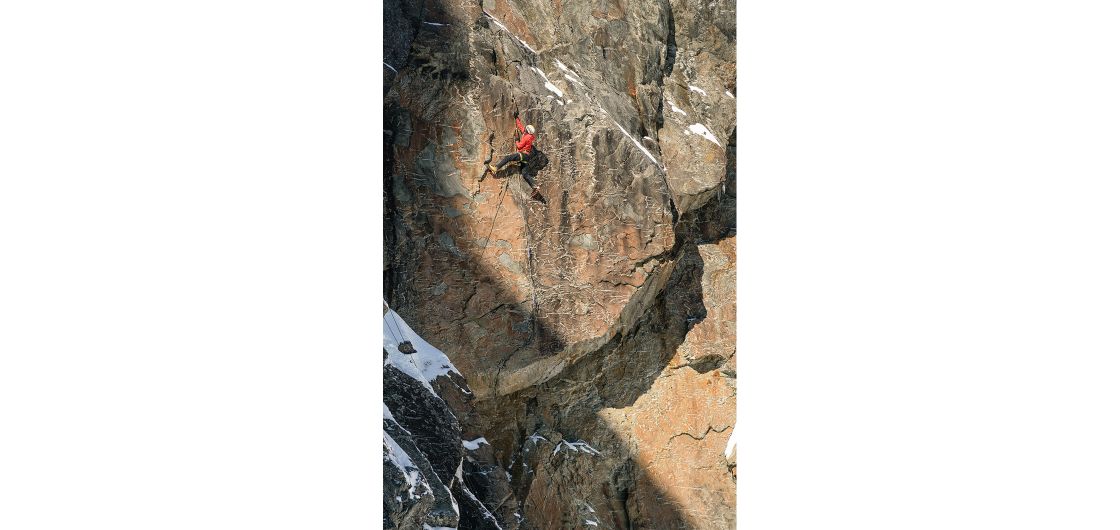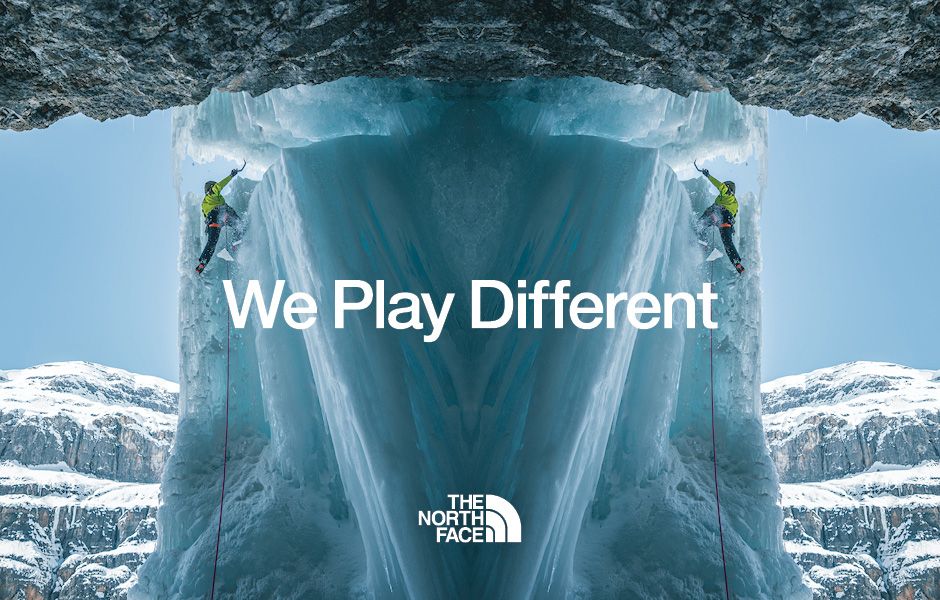
Nine Mantras For The Climbing Life
By Alastair McDowell
Mountains teach us powerful lessons. The practical way that I carry these lessons with me is by condensing them into short mottos and mantras that I can quickly pull out to deal with a situation or to re-wire my thinking. I’ve collected these over the last ten-plus years of mountain travels, from books, people and conversations, and my own experiences. They deal with challenges of the ego, risk, uncertainty, and self-belief. There is a magical quality to having phrases like these to summon, like an incantation to break a particular thought spiral, as useful in the mountains as in day-to-day life. I hope they are useful to you—I'm sure you already have a few of your own!
'Body First, Ego Second'
The body is a temple, it should not be pillaged. Listening to your body is a deft art, but preserving your body should be a top priority for long term enjoyment of the hills and life in general. All too often, we are tempted to do more than our bodies are able; it could be a trip invitation too soon after the last, a last-minute race entry for which we’re not well-enough trained, an injury that crops up before a big effort. It can be hard to abandon something we’ve planned; the lost opportunity leaves a gaping void. Or maybe you are teetering in a risky situation, questioning whether to commit to a move on a rock climb, pre-clip that first bolt, or jump across a void. Much of the time, what drives us to override our body’s call for self-preservation is the ego. Saying to myself, 'Body First, Ego Second' shifts my priority towards the body over the ego. If there is still enough rational justification for the decision, that will still win out after sensible thought.
'Accept and Embrace'
This is an antidote to the common pattern of 'hoping, wishing and wanting' behaviour that is talked about in Arno Ilgner's influential Rock Warrior’s Way. As much as we’d like, we can’t manifest a stubborn storm to abate, snow conditions to suddenly improve, rivers to drop, or avalanche-prone layers to heal. The sooner we accept the reality of a situation, the sooner we can invest our mental energy into the next step: embracing what is here and now, working out solutions to deal with the scenario. 'Accept and Embrace' helps me re-focus on what I can control, and to enjoy the twists and turns of an adventure that I may not have planned.
'Comparison is the Thief of All Joy'
It’s extremely easy to compare ourselves to others, but most of the time we compare ourselves to someone who is better at a particular activity. This is especially easy with climbing, where every route has a grade, or running, where everyone has a time and a place. I don’t think one’s level of absolute performance is important at all; the only important thing is how close we can go to our own limits. For a climber high on a route, fighting to stay on the rock, or a runner racing at their threshold, fighting off cramp, can’t these experiences be had at any level? 'Comparison is the Thief of All Joy' is a reminder that comparison is a negative mindset, and to stay away from it will allow us to retain our joy.
We Are Athletes
Everyone who goes out into the hills has gained a level of proficiency in the physical activity of running, hiking or climbing. That is in fact the definition of an athlete: a person who is proficient in physical activity. If you strive to improve in your chosen physical activity but feel weak or slow compared to your peers, try saying to yourself, 'I am an athlete, proficient at physical activity'. Then change it to the 'We'. This kind of positive self-talk builds you up and makes you feel powerful. You’ll inevitably improve with the positive affirmation.
'Heaps In, Heaps Out'
The more you invest in something, the more you will reap from it. This addresses some of my inherently stingy traits. Even though this helps fuel my penchant for a lightweight style, in many other times it can be a detriment. Packing enough food, investing in high quality gear, dedicating time and energy to a pursuit… I say, 'Heaps In, Heaps Out' to myself often, to remember that wise investments often pay off in the long run.
'We Can, We Do'
Mountaineering, especially 'classical' styles of mountaineering over long ridgelines, is the art of balancing speed, efficiency and safety. It’s not practical to use a rope and protection for the entire route, at a certain point more risk is introduced by the increase in time and fatigue it causes. But oftentimes we do have the ability to increase our safety in times where we have the time, or the terrain difficulty increases. This often means placing an extra piece of protection or whipping out the rope again, where the only real inhibitor is laziness. 'We Can, We Do' is about increasing your safety at any opportunity where it is feasible and doesn’t interfere with your other objectives.
'Let’s Just Try'
You’ve driven a few hours and hiked in for a day to find your objective seemingly out of condition, or the weather forecast questionable. You’re disappointed and wonder if there’s even any point trying. 'Let’s Just Try' is about not giving up too easily, it pushes you out the door the next day to take the first steps, remaining cautious, ready to turn around if your fears are substantiated. Only by 'just trying' can you dispel any doubts and know for sure. Is it dangerous to continue, or just uncomfortable? Persevere a little more, you’re already there, so just try.
'The Effort is the Reward'
Mountaineering, or any other gritty activity, requires large amounts of slog, pain, hardship, effort. And all for a very short-lived moment on the summit—if you’re successful. Focusing too much on the end-reward can actually reduce the amount of satisfaction we get from the activity itself, reducing likelihood that we’ll continue pursuing the activity long-term. I learnt this from a podcast about dopamine. The best way to improve in an activity like mountaineering is building years and years of mileage, skill and experience. If you can train yourself to find reward in the effort itself, enjoying the grind even without the summit, you’ll more likely survive the years of training required to realise your future goals.
'Enjoy Your Life'
It’s not vital to be reaching ultimate levels of performance in every pursuit, on every occasion. 'Enjoy Your Life' is a reminder to embrace some things for pure enjoyment without expecting any future reward. Balancing the times of pushing hard and times of rest—a challenge for motivated mountaineers—will mean that every time you do go into the hills you’ll be replenished, psyched and have a positive experience. Pursue things that allow you to 'Enjoy your life'.
It is said that mountaineering is only 20% physical and 80% mental. If that is true, then it would be worth devoting some effort to training our mental power, as well as our physical power. Break down those mental blockages and see what happens.
Alastair McDowell is a member of the New Zealand Alpine Team and this article was originally published on their website.
